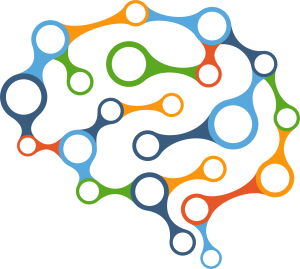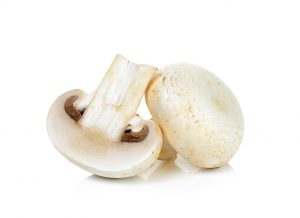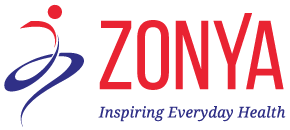Keep Your Mind Sharp and Prevent Alzheimer’s
What if you could reduce your risk of developing Alzheimer’s Disease by up to 53%?
 Great news! Recent research says you can!
Great news! Recent research says you can!
Perhaps you have heard of the Dietary Approaches to Stop Hypertension (DASH) diet for high blood pressure or the Mediterranean diet for heart health? When it comes to protecting your brain, scientists have determined that a hybrid of these two eating styles may be best.
It’s all about “Mind”ful eating!
Dubbed the “MIND” diet (short for Mediterranean-DASH Intervention for Neurodegenerative Delay), this eating pattern goes big on natural, unprocessed plant-based foods while keeping a lid on red meat, saturated fat and sweets.
Researchers tracked detailed eating logs in an older adult population for an average of 4.5 years to uncover diet trends among those who developed dementia versus those who didn’t. Their discovery: older adults whose diets most closely resembled the pattern laid out in the MIND diet had brains as sharp as people 7.5 years younger, equating to cutting the cost and prevalence of Alzheimer’s in half!
How does your diet stack up?
Give yourself a point for each of these 15 MIND diet rules you typically follow:
How many checkmarks did you get? And more importantly, how many more could you get if you tried?
You don’t have to be perfect to reap the benefits!
Those in the study who had an average score of 9.6 points out of 15 saw the biggest drop in their Alzheimer’s risk, while the ones who scored in the middle (7.5 points) still cut their risk by over one third!
Supplement with these eating habits.
While the MIND diet is certainly good, experts advise that we can do even better with these tips:
- Seriously limit added sugars. Studies are strongly pointing to Alzheimer’s being “type 3 diabetes.” Saying “no thank you” to sugary beverages, cakes, cookies and desserts goes a long way to help your brain.
 Add mushrooms twice a week! According to the March 2019 Journal of Alzheimer’s Disease, studies show eating 3/4 cup cooked mushrooms twice weekly reduces the risk of cognitive decline by 50%. Their secret powers are found in their ergothioneine content, a unique antioxidant and anti-inflammatory which humans are unable to produce on their own. (Family members who think they don’t like mushrooms will never be the wiser if you grind them up and sauté with ground meat.)
Add mushrooms twice a week! According to the March 2019 Journal of Alzheimer’s Disease, studies show eating 3/4 cup cooked mushrooms twice weekly reduces the risk of cognitive decline by 50%. Their secret powers are found in their ergothioneine content, a unique antioxidant and anti-inflammatory which humans are unable to produce on their own. (Family members who think they don’t like mushrooms will never be the wiser if you grind them up and sauté with ground meat.)- Enjoy coffee and green tea. Both the caffeine and incredibly high antioxidant content in these beverages seem to contribute to the cognitive benefits seen when they are regularly consumed. Studies have also found specific benefits in overall memory, spatial memory, and working memory.
- Enjoy 60% or higher dark chocolate. Multiple studies associate cocoa with a lower chance of cognitive decline. Cocoa powder (100% cocoa) can be added to oatmeal, yogurt, and energy bites (Chocolate Chia Energy Bites are delicious!), so you can get the benefits without the added sugar, fat and calories.
 Pump up the spices! Turmeric, ginger and cinnamon (preferably ceylon cinnamon) have notably high brain-healthy antioxidant and anti-inflammatory properties. Add these flavorful spices to smoothies, oatmeal, curries and even coffee!
Pump up the spices! Turmeric, ginger and cinnamon (preferably ceylon cinnamon) have notably high brain-healthy antioxidant and anti-inflammatory properties. Add these flavorful spices to smoothies, oatmeal, curries and even coffee!- Measure and supplement vitamin B12 and vitamin D. Being deficient in vitamin B12 can create similar symptoms as Alzheimer’s, while supplementing and raising your blood level can reverse those symptoms. Vitamin D is also a critical nutrient linked to Alzheimer’s, as well as many other conditions including diabetes, cancer, and heart disease. Most experts recommend supplementing 1,000 to 2,000 IU Vitamin D3 every day.
Lifestyle factors matter too.
You can fight Alzheimer’s with these brain-healthy lifestyle actions:
- Don’t smoke.
- Get good quality sleep. This means 7 to 8 hours per night. (If you have sleep apnea, it’s a must to diagnose and treat it.)
- Exercise. According to the Alzheimer’s Research and Prevention foundation, regular physical exercise can reduce your risk of Alzheimer’s disease by up to 50%! Aim for at least 150 minutes (or about 20 minutes per day) of moderate intensity exercise each week, adding time for weightlifting (or resistance training). Remember, finding what you enjoy is key! Top-rated exercises for the brain include dancing, biking, walking briskly/running and lifting weights, as well as yoga.
- Stay socially engaged. Human beings are highly social creatures. We don’t thrive in isolation, and neither do our brains!
- Stimulate your brain. Those who continue learning new things and challenging their brains throughout life are less likely to develop Alzheimer’s and dementia. Practice memorization, musical instruments, enjoy strategy games, puzzles and even try writing or eating with your non-dominant hand!
- Manage your stress. Chronic stress can take a heavy toll on the brain, leading to shrinkage in a key memory area, and hampering nerve cell growth. Simple stress management practices (including eating the right foods) can minimize its harmful effects. Take deep breaths, schedule daily relaxation activities, laugh and remember to have fun!
 Take a self-inventory.
Take a self-inventory.
What TWO things discussed here are you already doing well, and what TWO things will you start working on right away?
Set some goals, including learning about, cooking and enjoying REAL Food…well into your golden years!
P.S. Looking for a speaker to address Maximizing Your Mental Wellness at an upcoming conference or employee program? I’d love to customize a perfect presentation or webinar that meets the needs of your organization. Contact me here.
